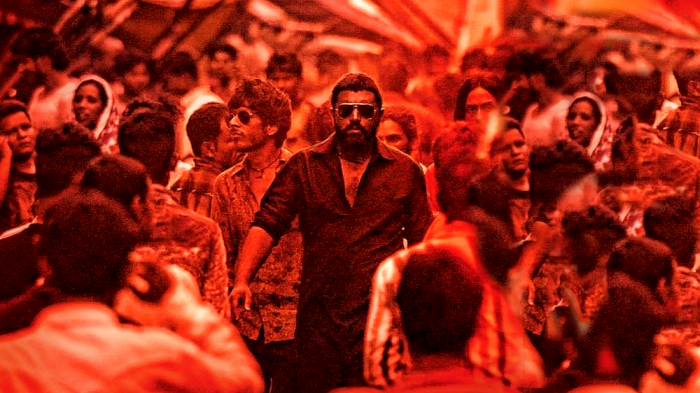
New York, Aug 4: National Award-winning documentary "Son Rise" and Geetu Mohandas-directed "Moothon" were among the films that took home the big honours at the 20th New York Indian Film Festival (NYIFF), which switched to a virtual edition this year amid the ongoing Covid-19 pandemic.
Over 45 feature-length narratives, shorts and documentaries from the Indian subcontinent were showcased at the festival’s virtual edition that ran for 10 days beginning July 24.
The films programmed were in various languages including Assamese, Bengali, Haryanvi, Hindi, English, Ladakhi, Maithili, Malayalam, Marathi, Nepali and Tamil.
The award ceremony for the festival was held virtually Sunday, with the filmmakers, cast, award winners and festival officials joining from across India and the US.
The award for the Best Documentary (Short) went to Saurav Vishnu-directed "Tailing Pond", which highlights the "horrifying effects of uranium extraction on the health of the indigenous population" of Jadugoda, Jharkhand.
"Son Rise" by Vibha Bakshi won the award for Best Documentary (Feature).
The documentary had won the National Award for the Best non-feature film in 2019 and was among the two centrepieces hosted by the festival this year. NYIFF called "Son Rise" “a powerful documentary about patriarchy in Haryana and efforts by a few good men to bring meaningful change in the society.”
The award for Best Short (Narrative) went to Sanat Ganu's "Arabian Nights". The narrative focuses on a child, his imaginary friend and a family that attends a conference where the attendees believe the earth is flat.
Director and scriptwriter Sudhanshu Saria accepted the award for Best Screenplay for "Knock Knock Knock". Saria’s screenplay “explores the lonely life of a man, an unlikely friendship that may or may not be real.”
Sanjana Dipu won the award for Best Child Actor for "Moothon" for her performance of a teenager in search of a brother.
Garggi Ananthan won the Best Actress award for her role as Kalyani in the film "Run Kalyani" and the Best Actor award went to Malayalam star Nivin Pauly for "Moothon". The award for the Best Director went to 23-year old Achal Mishra for "Gamak Ghar".
"Moothon" won the award for Best Film and its director Mohandas accepted the award for the film, which is "about love and loss that travels from the quiet, lush beaches of Lakshadweep to the mad hustle-bustle of the streets of Mumbai."
Produced by award-winning Indian film director and writer Anurag Kashyap, "Moothon" had premiered at last year’s Toronto International Film Festival.
NYIFF festival director Aseem Chhabra said that the process of searching for films for the festival began last fall and they were ready to showcase them to audiences in New York in April but had to change plans for the festival due to the pandemic.
"I know the best way to enjoy films is in a theatre with the audience and have live interactions, conversations. But the virtual festival is the next best option and in the process, we have been able to reach out to a much larger audience in the US, North America as well in several other countries.”
NYIFF said that a virtual edition expanded the reach of the festival and audiences from 95 countries were able to access and view the films.
Dr Nirmal Mattoo, Chairman of the Indo-American Arts Council, co-founder and owner of Atlantic Dialysis Management services, the largest private dialysis provider in New York State, said NYIFF works with an independent jury - filmmakers, film professors, writers and critics.
Indo-American Arts Council (IAAC), the leading cultural organisation, presents the festival.
"The Covid-19 pandemic has forced the closure of theatres but we believe that in such trying times arts, including films are even more important for the community’s well-being. So, this year we have decided to bring the films directly into your living rooms.” IAAC Vice-Chairman Rakesh Kaul had said.
The New York Indian Film Festival is the oldest Indian film event in North America. Over the years, the festival has held New York premieres of a wide range of films, many of them critically acclaimed, including "Monsoon Wedding", "The Namesake", "Slumdog Millionaire", "Shahid", "Dum Laga Ke Haisha" and "Gangs of Wasseypur".
 "I do rehearsals so that we can easily and confidently make mistakes. As it doesn't show on your face. I know you all enjoy watching me dance incorrectly. I am okay with it... I am not worried about that," Nana told reporters here at the launch of the title track of Welcome Back along with co-stars John Abraham and Anil Kapoor.
"I do rehearsals so that we can easily and confidently make mistakes. As it doesn't show on your face. I know you all enjoy watching me dance incorrectly. I am okay with it... I am not worried about that," Nana told reporters here at the launch of the title track of Welcome Back along with co-stars John Abraham and Anil Kapoor.





Comments
Add new comment